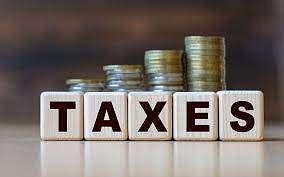What kind of Property Taxes are you expected to pay in Thailand?

Thailand as it stands can be a bit of a Tax haven for investors, particularly for anybody who is interested in acquiring property.
For first time buyers, it can be tricky to know exactly what taxes to incorporate into the equation, specifically when it comes to that crucial time of entering into negotiations once you have found a property that you would like to purchase.
In this article we will do our best to clarify things for you, so you feel more confident when the time comes to making the best deal for you.
Let us look at what kind of property taxes that are involved.
1. Transfer Fee
2. Withholding Tax
3. Stamp Duty
4. Business Tax
Transfer Fees
When the time comes to have the property transferred over to you, it will be done under one of the following ownership options, these include, Foreign Freehold, Leasehold, or Thai Company. If you choose to purchase a condominium then Foreign Freehold ownership is possible and the taxes will be 2%. While in Thailand it is not enforced that the amount is shared between the buyer and the seller, however, if you are purchasing something off-plan/under construction, then it is normal practice to ask the developer to these fees with the buyer. If purchasing a property within the secondary market then it needs to be agreed during the point of sale as to who is liable for what?
The transfer fees are also always on the appraised value of the property, assessed by the land department during the process of registration. In many cases, the owner will end up paying less than anticipated as the declared value has been lowered. This 2% is also the case for those registering under leasehold or under a Thai Company.
Withholding Tax
This is technically considered as Income Tax, in the case of property, this is paid when once it is sold. For a Thai company, the tax rate is capped at 1% of the appraised value or the sale value, whichever works out to be a higher amount. This fee is always paid by the seller. Withholding tax is calculated on how long you have owned the property for, the longer you have owned the property the less tax you will be expected to pay. For individuals, the withholding tax is set progressively and based on the appraised value, therefore you will pay a higher tax rate if you have made more on the sale.
Stamp Duty
This duty is charged at 0.5% of the appraised sale value and will only be applied if you are not expected to pay business tax. You will never be asked to pay both so it helps to know that it is one or the other.
Business Tax
Also generally paid by the seller and not applied just to businesses, but also to individuals. If the seller has owned their property for a period of five years or more, then they are exempt from paying any business tax. This is also the case if the property has been inherited. The rate you will need to pay is 3.3%.
For anybody looking to purchase for investment purposes or simply want to relocate, you will see that taxes are relatively low, making Thailand an affordable option for just about anyone.


